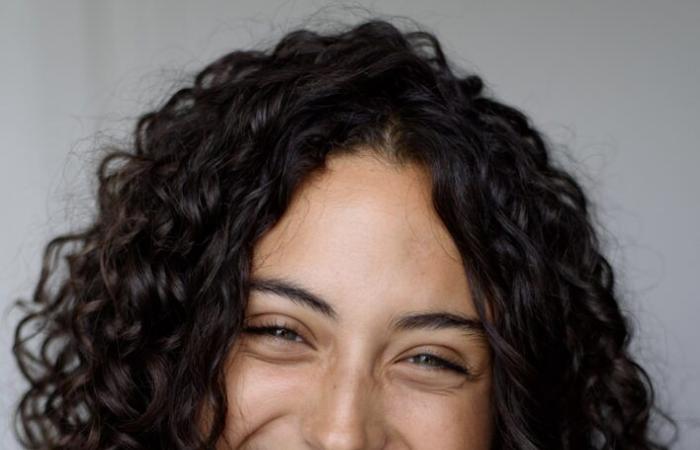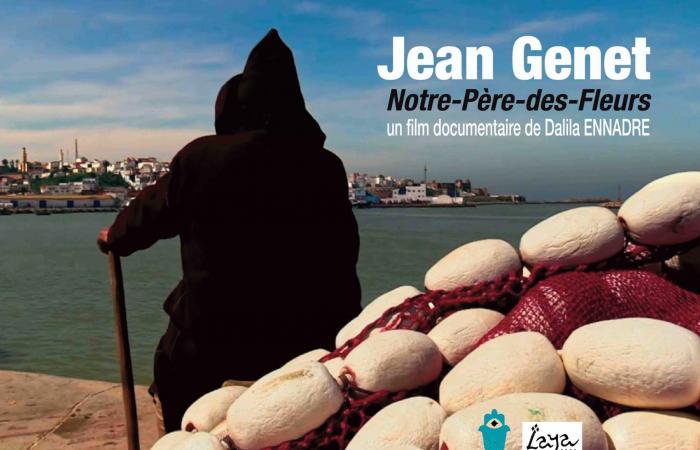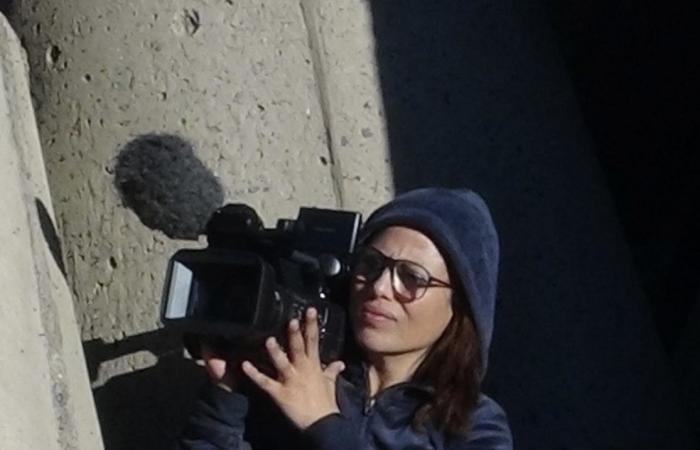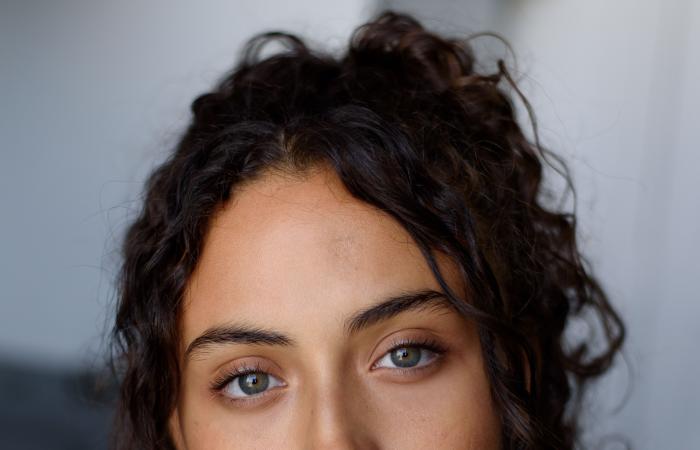Thanks to the artistic practice of both her parents, Lilya Ennadre was immersed in the world of creation, even before choosing her vocation. This family environment will have shaped his professional career. “My mother was constantly consumed by her work. Like many directors, it was part of his daily life. Everything around us served to fuel his thoughts on his current or future film. She was very observant and she educated me on this way of seeing the world,” recalls the Franco-Moroccan actress.
“My father, who is also a filmmaker, has dedicated his life – and still today – to filming the struggles he defends and the world around him. It’s this everyday look at the camera that accompanied me growing up,” Lilya Ennadre tells us. Since she was little, the Paris native has felt “permanently inhabited by this desire for cinema, this same desire to tell stories”.
“I do it today as an actress, but with an approach that is almost like a documentary. I prepare a lot for each role I play. I gather the necessary baggage and I work a lot intellectually, in advance, before going in front of the camera. It comes to me from this documentary heritage from my parents,” she tells us.
“I dreamed of being an actress so much that I don’t remember when it clicked. I spent my childhood creating characters for myself, I was fascinated by film sets, seeing the emotion of people who recount their experiences in front of my mother’s camera (…) She felt in me this call of cinema but both my parents had reservations about me evolving in the field. When they understood that this was indeed my vocation, they supported me with all their hearts.”
Lilya Ennadre
Dalila Ennadre and her daughter Lilya / DR
A cinema of everyday people
Daughter of Moroccan documentary filmmaker Dalila Ennadre, the actress keeps a precious memory and life advice from her mother, who died in May 2020. “The last thing she said to me regarding cinema was: ‘my daughter , you have talents, but you have to work. Today, I put all my energy into it, whether it’s classes, or preparing for a role, or professional networking. It is for me a guideline to keep my feet on the ground,” tells us Lilya Ennadre, who devoted a traveling retrospective to the work of the late filmmaker, through the French Institutes of Morocco.
This ten-city tour is offered by Laya Prod, a production and distribution structure launched by Dalila Ennadre in 2019 and now managed by Lilya Ennadre. This retrospective is supported by the Council of the Moroccan Community Abroad (CCME), by 2M, by the BMCI Foundation, as well as Culture Plus Conseil. The actress is delighted to see this project come to fruition. “I contacted the French Institutes who were very receptive. Things happened quickly, even a little earlier than the date I had planned for the five years,” she tells us.
For her, it is also “a way of expressing [sa] gratitude to [sa] mother, for the precious heritage she [lui] transmitted and through films which [lui] reveal so many life lessons. In this way, “reviving her memory and telling it” helps the young artist to maintain her link with the deceased. “It’s the resonance of the memory that keeps the person alive in people’s minds,” recalls Lilya.
“Today, I feel my mother and my father are very happy with the career path I have and to see that I am not betraying my convictions for roles,” she tells us. In Morocco, Lilya Ennadre took the initiative to make this retrospective a moment of homage to her mother, but also of sharing with everyone, like Dalila Ennadre’s vision of cinema. On the program, the seven documentary films are linked to social issues, “to continue to make this precious heritage resonate”.
Lilya Ennadre’s wish “is that this tour is not limited only to Morocco”. In her projects, she intends to propose the initiative in France, Spain, or even Egypt, given that the themes addressed in these films “are universal and transcend borders”. But starting the event in Morocco starts from Dalila Ennadre’s “visceral connection” to her country of origin. In this respect, Lilya “testifies to the impressive energy she displayed in giving the best of herself, despite her illness, especially during the last two years of her life”.
Indeed, the actress remembers that each stay of her mother in the country allowed her to “rediscover vital energy” to devote herself to creation. “In her meetings, she found each time the essence of her humanitarian message,” emphasizes her daughter. The first film shown as part of this retrospective was Dalila Ennadre’s posthumous documentary, “Jean Genet, our father of flowers”. Her daughter herself supervised the finalization of this work, which was also awarded an award for its artistic qualities and its innovative approach to the genre.
Projects between fiction and documentary approach
Previously, the young actress accompanied her mother during filming, even immersing herself in the medina of Casablanca, where Dalila Ennadre grew up. Between the ages of 8 and 9, Lilya spent a year in her mother’s family’s neighborhood. She immersed herself in the habits and way of life of the women of the historic city of Casablanca, attended public school, learned Arabic and learned more about the social situation of those around her, neighbors and relatives.
 Dalila Ennadre
Dalila Ennadre
“I think that without my mother’s films, I would not know Morocco as I know it today. She was a spokesperson for the people and I am happy to continue her legacy. I was lucky to have had access to the people she filmed intimately recounting their experiences, particularly the women of the medina [dans ‘El Batalett’, disponible sur les réseaux sociaux de l’Institut français du Maroc, ndlr]. I learned not to look at the country through the filter of prejudices that are sold to us in the cinema. I don’t know any cliché of the Moroccan woman.”
Lilya Ennadre
Suffice it to say that Dalila Ennadre “managed to make her films a mirror of the people who find themselves there and recognize themselves there, which is why she is so loved”. One thing led to another, working on her artistic career as well as on her mother’s work, Lilya took more and more of a taste for directing, with a penchant for fiction which leaves greater room for the freedom to imagine. She tells us she feels “more and more the call of the country”.
“Until a year ago, I never had the idea of going behind the camera. I have always been fascinated by accompanying my mother, but without feeling the need to film myself. Now that I am fully invested in perpetuating his legacy and immersing myself in his cinematic universe, I tell myself that there is still so much to show and do.”
Lilya Ennadre
 Lilya Ennadre
Lilya Ennadre
This is how Lilya Ennadre has been thinking about it since last May. After “a flash” and “very clear images”, she now feels “the burning desire” to make a biographical film about the life of her mother, “she who spent her life filming that of others”. “I would like to give her this gift and show a more intimate side of her, what brought her on the path to the seventh art and what life journey led her to bring these universal questions that she addresses in her films,” the actress tells us.
“I admire her strength, her resilience, her humanity. To draw a parallel with her latest film, she asks the question of what we do with our pain and how to take advantage of each of them to continue to live on our feet,” Lilya Ennadre tells us. This is what the late director did, in her posthumous documentary opus, where “she filmed life in a cemetery, being crushed by illness”.
For the heir to this work, “it is a universal message of hope and love”. Alongside her acting projects, she sees her upcoming film as being a fiction, the story of “someone who, all her life, has done everything to remain standing in the face of life’s challenges”.









